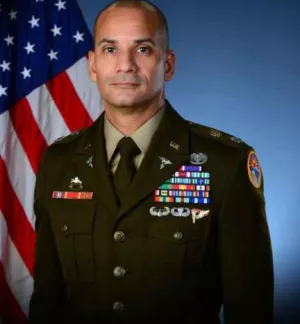
Contemporary approaches to decrease suicide inducing behaviors are failing. With suicide deaths increasing, and now at record highs for active-duty members across the military, new innovative approaches are essential. We must continue to evolve the care and services already in place, while augmenting and extending their reach to help many more requiring care today.

Leveraging Harvard Medical School's smartphone software, mindLAMP (Learn, Assess, Manage, Prevent) is designed to help quantify each individual’s experience of mental health (Assess) and customize Learning, Management, and Prevention based on the digitally assessed data. The concept is simple but a paradigm shift for mental health. While effective treatments already exist today, the challenging part is making sure they are delivered to the right people at the right time. Mental health is dynamic and changes across time, social, and physical environments. New technologies like mindLAMP now embrace the personalized and variable presentation of mental illness, that has for so long made it hard to treat, by offering new accessible, real-time, individualized insights.
But even technology like mindLAMP is just that – technology. It can only be useful when paired with the right mental health prevention and treatment approaches. That is where the Victory Wellness effort from the 1stInfantry Division offers the second half of the solution. Victory Wellness provides traditional services as well as a new frontline of in-person, online, and team resources designed to keep service members mentally fit. Victory Wellness encompasses five pillars of strength: emotional, family, physical, spiritual and social with support designed for holistic readiness and resiliency. Provided to all service members at Fort Riley, Kansas, the program is able to deliver services at scale and support the mental wellness of everyone at the base, from new recruit all the way up to the Commanding General. The program is already showing impressive results.
There is clear synergy between mindLAMP and Victory Wellness. Today mindLAMP app is in use now in clinical research at over 20 sites across the world as well as in care at Harvard Medical School. Currently, technologies such as mindLAMP have not been evaluated for military service members. New proposals are underway to change that, with the goal of soon working with the Army's 1st Infantry Division as a complement to its effective Victory Wellness program. Specifically, mindLAMP could help assess mental health in real time, not just at annual check-ups, and then deliver the information from Victory Wellness to the service member. For example, if a service member consents to allow the app to share data on their sleep patterns, data that personal smartphones already gather, mindLAMP can help suggest specific resources from Victory Wellness that may improve the quality of their sleep. While the technology is not intended to replace working with a mental health specialist, it is designed to put the resources into the hands of service members and offer them an easily accessible gateway to wellness. In essence, the goal is to build off the already successful Victory Wellness program by making it even more tailored and customized to the unique wellness needs of each person.
A January 2022 trip by the entire Harvard team to Fort Riley (see photo above) for a series of in-person meetings and hands on technology demonstration is the latest development in this effort. Currently formal proposals and plans are underway as the best paths to carefully evaluate this new technology augmented approach for mental health are drafted.
The views expressed are those of the author and do not necessarily reflect the official policy or position of the Department of the Army, Department of Defense, or the U.S. Government.
Figueroa, Edward. “Stepping Up to the Challenge: Smartphones and Military Mental Health .” Edited by Angel, Natalia. Belfer Center for Science and International Affairs, Harvard Kennedy School, February 16, 2022




